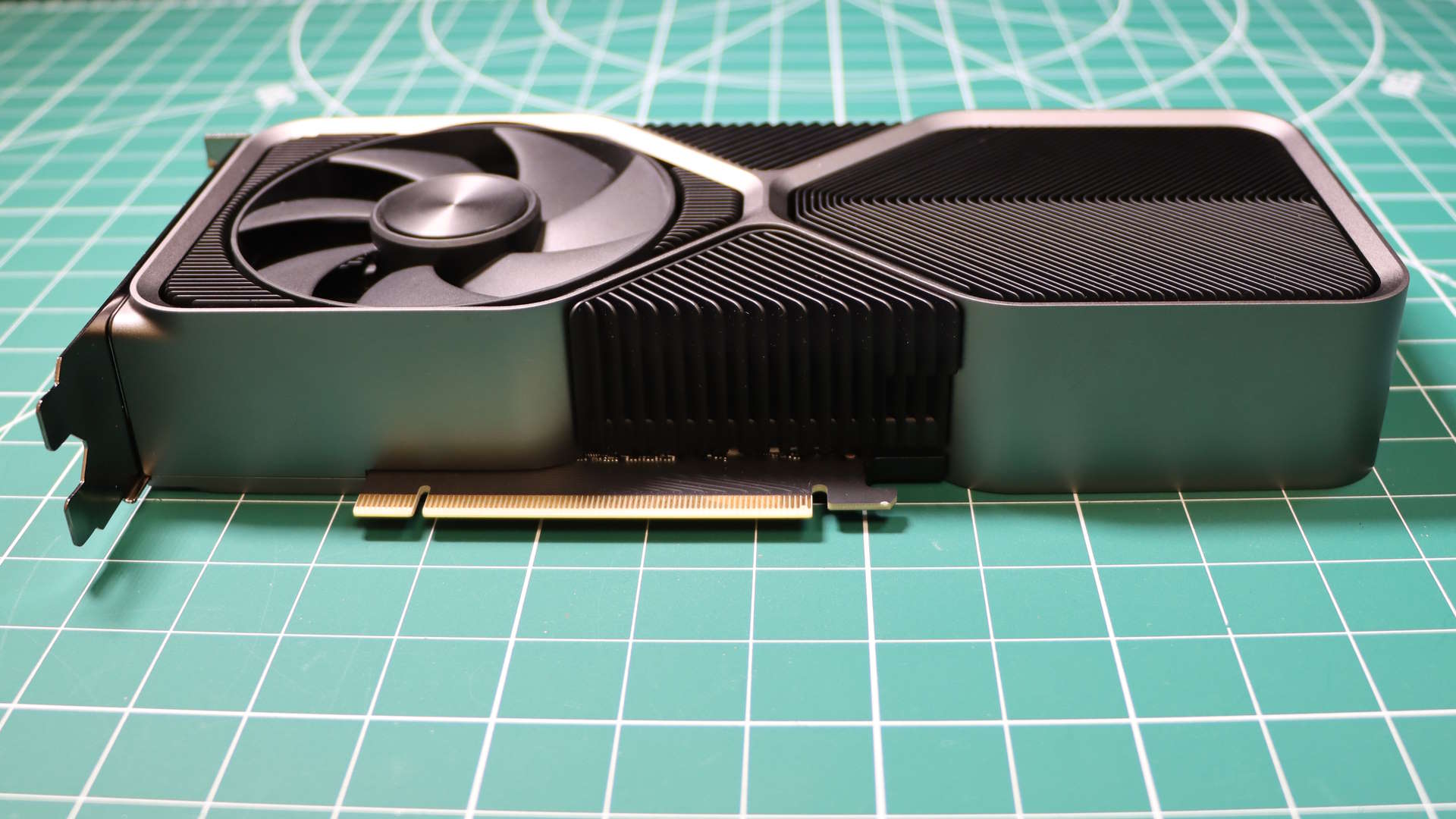Nvidia RTX 4060 Ti rumoured to cost $450 at launch in May
And that still kinda feels like too much for the card reportedly launching next month.

The expected launch of the Nvidia RTX 4060 Ti has been penned in for May by the rumour mongers and, as we shuffle through April, we're starting to hear noises about the pricing for the green team's next most affordable graphics card. With a potential sticker price of $450 the RTX 4060 Ti would be only $50 more expensive than the last generation's RTX 3060 Ti.
Just a bit more expensive, then, not a lot more expensive. I guess we've got to take the wins where we can find them, however meagre they seem.
The rumour has come from sources cultivated by the Red Gaming Tech channel, reportedly from the same source which provided an early $599 figure for the recently launched RTX 4070. And I've got to say it scans with what we know about the card.
We're expecting performance a little beyond the RTX 3070, which itself was a $499 graphics card. And, given the way pricing has worked out with the RTX 4070 being around RTX 3080 performance for $100 less, $50 less than the RTX 3070's original price point kinda makes sense.
I mean, I still don't like it. Given that we are really paring back the actual silicon on offer as we get lower down the RTX 40-series stack, it's harder and harder to argue convincingly the cards ought to be priced higher than their direct forebears. When Nvidia is increasingly relying on the (admittedly tangible and tantalising) promise of DLSS 3.0 and Frame Generation to deliver the extra performance, you're starting to pay more for improvements to the software ecosystem than the hardware itself.
Maybe that's fair given the impressive work that's gone into Nvidia's upscaling and frame interpolation features, but it's hard to shake the feeling you're paying more for less actual GPU hardware.
The pricing video does go on to talk about a hope—more a wish really—that pricing would trend down towards the $400 mark as the RTX 4060 Ti release date gets closer, but I'd suggest that's probably unlikely. Though it would be interesting to know how well the RTX 4070 has sold at its $599 price point and whether that might have an impact one way or the other.
Keep up to date with the most important stories and the best deals, as picked by the PC Gamer team.
I'm being told by retailers it hasn't gone as well as hoped.

Best CPU for gaming: The top chips from Intel and AMD
Best gaming motherboard: The right boards
Best graphics card: Your perfect pixel-pusher awaits
Best SSD for gaming: Get into the game ahead of the rest
For the record, the current rumour mill has the RTX 4060 Ti running on the AD106 GPU, the same chip used as the basis for the mobile RTX 4070. It will come with fewer CUDA cores than the mobile GPU, with 4352 instead of the laptop chip's 4608 cores. The boost clock has been leaked by an admin of the TechPowerUp GPU database who claims the default is 2,535 MHz, so you can expect it to run far higher than that in the real world as they invariably do.
The real sticky issue for the RTX 4060 Ti is its 8GB VRAM limitation. Like the RTX 4070, it will come with a fair chunk of L2 cache attached to the GPU itself, and that will help keep the bandwidth numbers up. At least when compared to what you might otherwise see on a 128-bit memory bus as the card is rumoured to have. But that only helps in bandwidth, not actual capacity to deal with a whole load of game data.
And even so, the rumoured 288 GB/s of memory bandwidth is significantly below the RTX 3070 of the last generation, and the RTX 3060 Ti, even though both older cards were similarly 8GB, too.
At 1440p and even some games at top 1080p settings, that could mean we see a $450 GPU struggle to game convincingly at the lowest regular gaming resolution. So yeah, it's going to be hard to even argue the RTX 4060 Ti hardware alone deserves to be priced just $50 more than the RTX 3060 Ti.

Dave has been gaming since the days of Zaxxon and Lady Bug on the Colecovision, and code books for the Commodore Vic 20 (Death Race 2000!). He built his first gaming PC at the tender age of 16, and finally finished bug-fixing the Cyrix-based system around a year later. When he dropped it out of the window. He first started writing for Official PlayStation Magazine and Xbox World many decades ago, then moved onto PC Format full-time, then PC Gamer, TechRadar, and T3 among others. Now he's back, writing about the nightmarish graphics card market, CPUs with more cores than sense, gaming laptops hotter than the sun, and SSDs more capacious than a Cybertruck.

